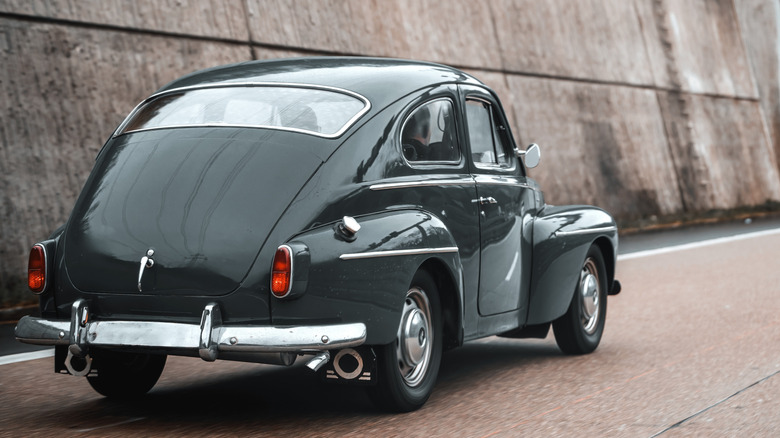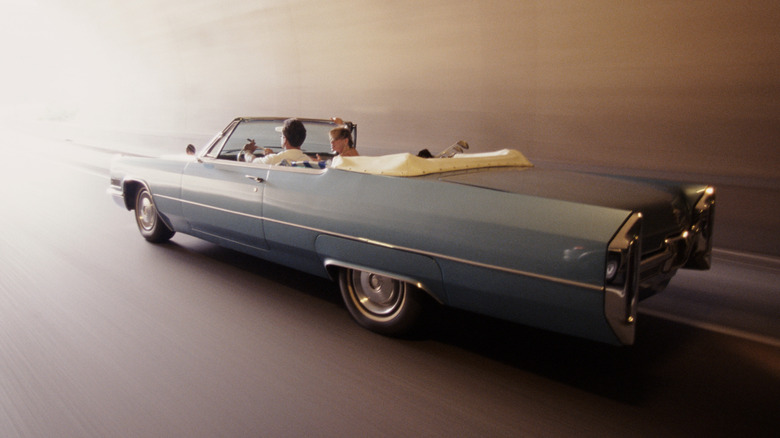Is It Practical To Use A Classic Car As A Daily Driver?
Classic car ownership is a relatively niche but increasingly-popular facet of automotive culture. Many enthusiasts feel that the average modern car has lost its character, so much so that a well-maintained classic car represents a breath of fresh air in an increasingly digital, minimalist world. They're often eye candy, magnets to fellow enthusiasts, and generally interesting (if finicky and nuanced) to drive regularly. But is it even a good idea to daily a classic (30+ year old) car, and how practical is it, really?
I myself fall into this camp, having never owned a vehicle one might consider "modern." I've maintained my classic Jeep Cherokee for 14 years and 200,000 miles (and counting), dailied a '73 Volkswagen Super Beetle for five years, and owned and worked on various other historic cars as a mechanic. I love maintaining and driving these machines, and they've provided some of the finest smiles and unbearable headaches of my life. This article will elaborate such moments, inherent to not just owning, but regularly driving classic cars.
My short answer, though: unless you're wealthy, you own something you know is reliable, or you understand what you're getting into with the process of making such a car reliable – no, it's not practical to daily a classic car. They're not terribly safe (even full-size Detroit iron), poorly-equipped, and (usually) don't handle as well and aren't as fast as modern cars. They require specialized care and mechanical know-how to properly maintain, and good luck finding parts for weird models. However, if you can handle all that, then driving and caring for a classic car regularly can be an incredibly rewarding experience, and here's why.
The downsides of daily-driving a classic car
Firstly, maintaining classic cars can be a huge pain in the neck. But it's considered a myth that these cars are inherently unreliable because of their age. Rubber hoses, sealants, gaskets, bushings, and so on are all perishable items, and you'll frequently find different-colored fluids on your driveway and new rattles as you're driving. But that also applies to well-used new cars. And once you get it mechanically-sound, a classic car is just as reliable as any other car, for the most part. The trick is getting it there — a process which generally costs money, time, or both. Then there's the matter of finding parts and places that specialize in servicing such cars, a particularly notorious problem on rare or imported vehicles, but not so much with classic muscle cars if you're in the U.S.
Aside from the money pit potential, the other major downside is that daily-driving a classic car can be thoroughly uncomfortable in numerous ways. Firstly, driving one can be extremely taxing in modern city traffic, especially when features such as passenger-side mirrors weren't standard-equipment on many cars until the 1960s and 1970s.
Their brakes, suspension, and chassis are less refined, leading to longer stopping distances and quirkier handling. Feature-wise, not every car even had air conditioning, much less other refinements we take for granted today. They're often louder and smellier than modern equivalents. And they're generally less efficient, unless you own something like a first-gen Civic. Also, pro-tip: be sure to invest in a GPS tracker and quality anti-theft systems.
The positives (and whether they outweigh the negatives)
Daily-driving a classic car invites a substantial amount of attention. Fellow enthusiasts seem to materialize out of thin air to compliment and talk about your ride. The culture itself is generally welcoming and wholesome. Many websites host forums full of fellow enthusiasts and experts who can help with sourcing parts, maintenance tips, and other useful information. And common regular-production models of all sorts will generally have readily-available parts from dedicated websites, plus instructional books and videos with helpful tips on making these machines enjoyable to drive regularly.
Basically, while driving a classic car every day might seem like a terrible decision regarding your finances and sanity (it frequently is, at first), you can absolutely make it a valid choice. But doing so requires far more work than simply purchasing something brand-new. It requires a willingness to learn and get your hands dirty, a passionate mindset, patience, and a level of mechanical sympathy for a car that might be past its prime.
While this might seem like a negative, it's actually a positive for many owners who may want that level of involvement and connection with their vehicle. Classic cars are excellent learning tools, as well as incredibly rewarding to fix up and care for. Also bear in mind that many classic cars are actually very easily-maintained as well. The memories and lessons such experiences provide can last a lifetime, but whether they're worth the price of all that time and effort is up to you.


